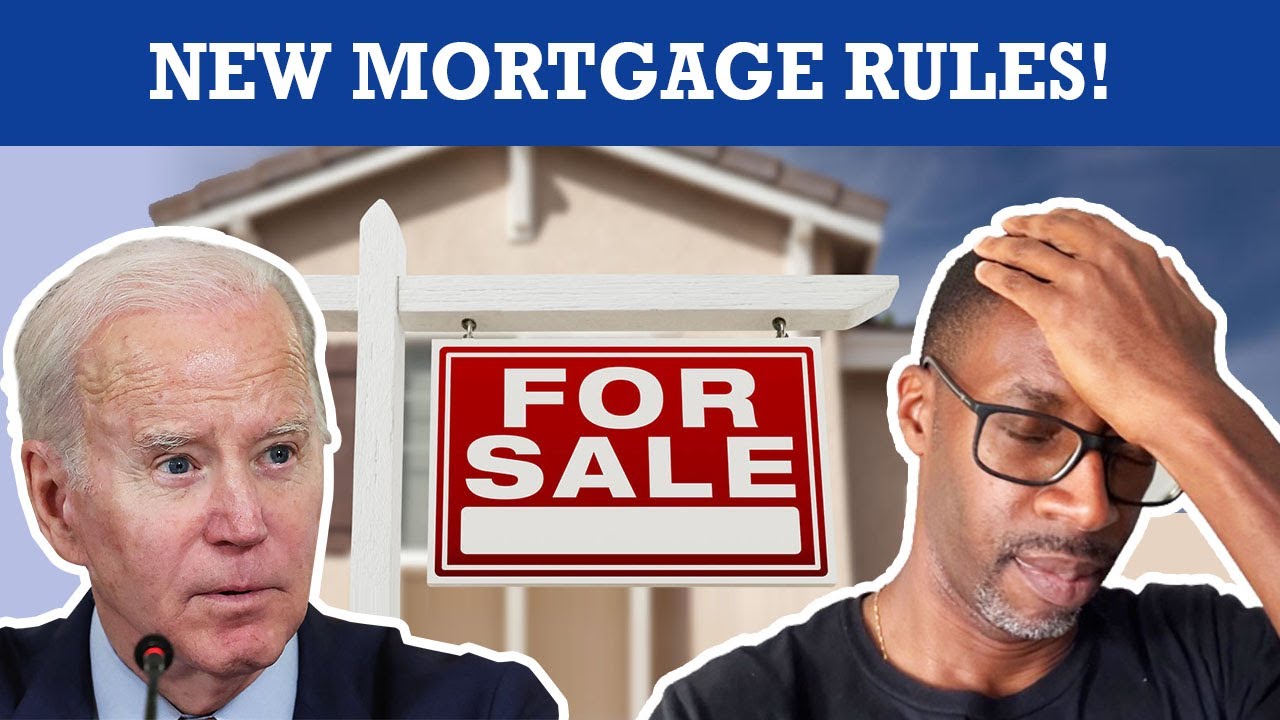Biden Administration's New Mortgage Rule Punishing Homebuyers Explained
Unleash Your Creative Genius with MuseMind: Your AI-Powered Content Creation Copilot. Try now! 🚀
Are you ready to dive into the intricacies of mortgage pricing adjustments? If not, don't fret, because I'm here to make this as exciting as a rollercoaster ride through a financial funhouse. Hi, I'm Sam, your trusty loan officer, and today, we're unraveling the mysteries of Fannie Mae's latest loan level pricing adjustments.
Unmasking the Loan Level Pricing Adjustments
Picture this: you're in the market for a mortgage, and suddenly, you hear the term "loan level pricing adjustments." Sounds about as thrilling as watching someone organize their closet, right? Well, fear not, because I'm about to break it down for you.
In the world of mortgages, loan level pricing adjustments are like those extra charges you find on your restaurant bill – they depend on various factors. These include your credit score, the size of your down payment, and the type of property you're eyeing. In simple terms, it's an additional fee for being perceived as a risky borrower.
But hold on, we're not here to judge. We're all a little risky in the eyes of lenders. The question is, is this risk good, bad, or just plain ugly?
What's Sizzling with the New Changes
Now, here's where things get spicy. Fannie Mae recently shook the mortgage market by lowering fees for some and increasing them for others. Let's put it this way – nobody likes a higher price tag.
For instance, if you're looking to buy a home with a credit score between 640 to 659 and a 5% down payment, you'll now pay a loan level pricing adjustment of 1.5% instead of the previous 2.75%. Translation: you'll be saving money on closing costs, and who doesn't love a good discount?
However, if you're on the other side of the credit spectrum, boasting a score of 740 to 759 and making a hefty 20% down payment, brace yourself. Your loan level pricing adjustment just doubled from 0.5% to 1%. That means you're coughing up more dough for closing costs, and it's like a bitter twist in your homeownership journey.
But remember, these changes aren't one-size-fits-all. Fees vary based on your credit score, down payment, and other factors. Think of it as complicated as those relationship statuses on dating apps.
These changes, though, could make homeownership more affordable for some, but at what cost? That's the big question.
The Why Behind the Mortgage Magic
So, why is all this happening now? Well, it's part of a grander plan to support homebuyers, especially those who are limited by income and resources. It's like a modern-day Robin Hood scenario, taking from the affluent and giving to those aspiring homeowners.
But here's where it gets interesting. Some industry experts argue that these rules are unfair because they effectively penalize buyers with stellar credit. It's like saying, "Congratulations on being financially responsible, now pay up."
The government, however, insists that these changes aim to strike a balance between risk and affordability in the mortgage market. It's a noble goal, but not everyone is buying it.
Your Role in this Mortgage Odyssey
What does this mean for you, the borrower? If you're struggling to buy your first home and have a lower credit score, this change could be a blessing. It might lower your closing costs, making homeownership more accessible.
But if you've got an enviable credit score, you might end up shelling out more for closing costs. It's like a bitter pill for the financially responsible. More credit, more problems, right?
However, some industry experts assert that these changes are not as cut-and-dry as they seem. High-credit borrowers might not be subsidizing those with low credit scores as extensively as it's portrayed.
In the end, it's vital to understand that those with higher credit scores are still paying less than those without strong scores. So, while there's some unease, the playing field isn't entirely skewed.
In a nutshell, these new loan level pricing adjustments may not sound thrilling, but they could have a significant impact on your financial landscape. Whether you're saving or spending more on closing costs, understanding all the costs associated with your mortgage is paramount.
So, take your time to research, read the fine print, and don't hesitate to ask questions. In fact, feel free to drop your queries in the comments below, and I'll be there to assist. If you're feeling overwhelmed, remember, your loan officer is your ally in navigating the complex world of mortgage lending.
There you have it, folks! Thanks for tuning in, and I'll catch you on the next financial adventure.

Related Recaps
- Ngày 13/05: Chúng ta thuộc về Đức Ki-tô chứ không thuộc về thế gian – Lm. Antôn Nguyễn Văn Độ
- Valentine heart emoji meaning in Hindi || Whatsapp Pink heart emoji meanings || LearnVid Dr. Dipti
- CHIVAS apunta al Clásico Tapatío de Cuartos de Final del Clausura 2023
- Por las Mañanas I Programa Completo 12 Mayo 2023
- SEPARATE WAYS CONFIRMADO no RESIDENT EVIL 4 REMAKE